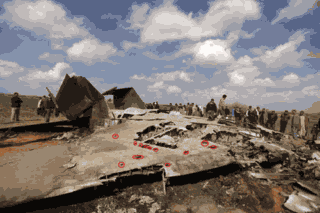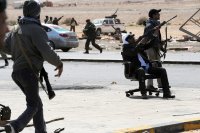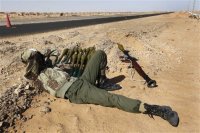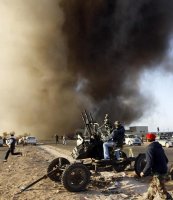For a country the size of Belgium with a population of 1.7 million, Qatar has been playing an extraordinarily high-profile role. This weekend four Qatari fighter jets are set to join the allied forces already off the Libyan coastline. The combat deployment is the first by an Arab or Muslim-majority country and thus of critical diplomatic significance.
Then there is the key role played in the "Arab spring" by al-Jazeera, the satellite TV channel set up by the emir in 1996. Broadcasting from Doha, al-Jazeera is now the dominant Arabic-language news outlet in the region and increasingly recognised around the world. Al-Jazeera English is gaining fans.
"Al-Jazeera were the first on to the events in Tunisia. Its reports from there were watched by the Egyptians. Then its reports from Egypt were watched by everyone else. It has been a very important catalyst," said Hugh Miles, author of Al-Jazeera: How Arab TV News Challenged the World. Others have gone further and described the successive uprisings as "fundamentally driven" by the TV channel.
Al-Jazeera's role and Qatar's decision to send planes are both rooted in Qatar's size, its location on a spur of the Arabian peninsula and the emir's efforts to ensure his country's independence from much bigger neighbouring states such as Iran and Saudi Arabia.
As in a game of damah, the emir, who seized power from his father in 1995, has eschewed confrontation in favour of a more subtle strategy. "Any wise person would do the same", said Faraj Almohammed, a 45-year-old economic advisor and keen damah player, in Doha's old market last night. For despite wealth from its vast oil and gas reserves which means its inhabitants do not pay income tax or utilities bills and enjoy average incomes of £50,000, Qatar is vulnerable.






